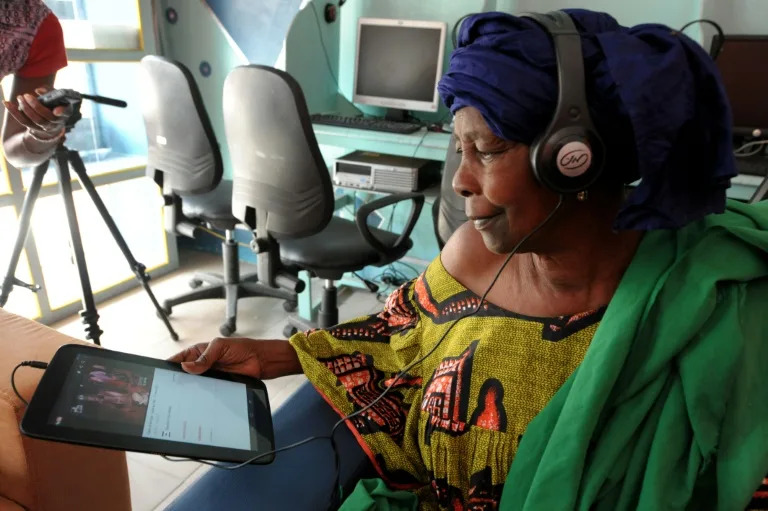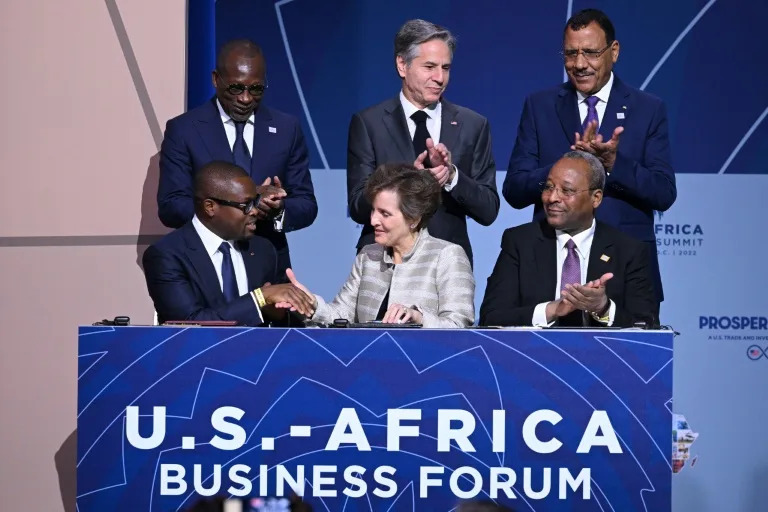Developing countries walk out of Montreal biodiversity conference over funding



Hundreds march during COP15 in Montreal

COP15 rally combats 'corporate greed'

The Canadian Press
Updated Dec. 14, 2022
MONTREAL -
Developing countries have walked out of global talks on conserving the world's biodiversity over concerns about funding, as the COP15 conference was to have turned its attention toward the role of the private sector.
David Ainsworth, an information officer for the talks, said the countries left the negotiations in Montreal early Wednesday.
Ainsworth said there are a number of disagreements.
"The issue that seems to have precipitated the walkout was a discussion on creation of a new fund for biodiversity."
The conference's marquee goal is a deal on preserving 30 per cent of the world's lands and oceans by 2030.
But the conference is also trying to reach agreement on how that goal should be funded. Estimates of the cost range fromUS$200 billion to US$700 billion a year, including the redirection of public subsidies from projects that damage biodiversity to those that support it.
Delegates have disagreed on whether the money should be funnelled through a new fund or existing channels. Transparency and disclosure are also topics of discussion.
Francis Ogwal, co-chair of one of the working groups attempting to reach a deal, said the walkout, which came at 1 a.m., was money-related.
"The key point ... is the level of the resource envelope that is going to be available for implementing this framework," he said.
"You can adopt a framework as ambitious as it could be, but if you're not explicit over how it's going to be funded ... implementation will not go at the level needed."
Ogwal said this round of negotiations differs from previous ones in that talks on goals and how they will be paid for are occurring in parallel.
"This time around we said the framework should be a package," he said. "It should all be done at the same time."
It isn't all about money. Discussions also involve technology transfer and capacity building to help funding recipients use resources efficiently.
A meeting was scheduled later Wednesday for all the heads of delegations of countries attending the conference in an attempt to resolve the impasse.
The walkout came as the two-week event entered its final days, with environment ministers from around the world arriving to try to hammer out a final text on the most difficult issues.
The role of private money and industry in preserving enough natural ecosystems to keep the planet functioning was to be the focus of talks Wednesday. Discussions were scheduled on how global capital flows can be harnessed to work with nature rather than exploit it.
Figures from the United Nations suggest those capital flows are now more part of the problem than the solution.
The UN says that in 2019, industries that are eroding biodiversity got money from major investment banks equal to Canada's entire gross domestic product -- an estimated $3.5 trillion.
The UN says most of that money went to agriculture, fisheries, fossil fuels and forestry.
They say the money devoted to conservation was $200 billionat most.
Federal Environment Minister Steven Guilbeault acknowledged Tuesday that the private sector will have a role to play.
Many business leaders appearing at the conference also want to discuss disclosure rules, so businesses that take biodiversity into account in investment decisions aren't disadvantaged by those that don't. Others want to ensure resources are transferred transparently, so third parties can ensure they're going where they're supposed to.
Overall, the COP15 conference is aimed at producing a deal for the world's declining biodiversity equivalent to the 2015 Paris Agreement, which assigned hard targets for countries to reduce their greenhouse gas emissions. Negotiators are hoping for commitments to preserve 30 per cent of the Earth's land and water by 2030, as well as plans to stop ecosystem decline by the same date.
Climate change and biodiversity are closely linked. Scientists have concluded that it will be impossible to hold global warming to 1.5 C without saving at least one-third of the planet.
The COP15 meetings go on until Monday.
This report by The Canadian Press was first published Dec. 14, 2022 By Bob Weber in Edmonton and Morgan Lowrie in Montreal
World Wildlife Fund urges more ambitious targets after developing nations stage COP15 walkout over funding plans.

Published On 14 Dec 2022
A “lack of political will” is hindering the United Nations biodiversity conference, the World Wildlife Fund (WWF) has warned, urging participating nations to set more ambitious goals to tackle the environmental crisis.
Delegates from nearly 200 countries have gathered in Montreal, Canada in an effort to tackle the rapid decline of global biodiversity – the loss of animals, plants, and other organisms, as well as entire ecosystems around the world.
KEEP READINGlist of 3 itemslist 1 of 3
Marine mammals, corals pushed to extinction: Conservation grouplist 2 of 3
Proposed EU legislation feared to pose threat to biodiversitylist 3 of 3
Call for urgent action as Australia faces biodiversity crisisend of list
“Currently, there’s simply a lack of political will compared to what’s needed to halt and reverse biodiversity loss by 2030,” Florian Titze, an adviser on international biodiversity policy at WWF Germany, said during a news conference on Wednesday.
“Nothing is lost yet. We still look hopeful towards the next week, when ministers are here,” Titze added.
“But the ministers really need to show up, and they really must step up and show us that they’re willing to not only ask for ambitious targets, but also take action on them – and that includes paying the bill.”
The call to action came after delegates from developing countries staged a late-night walkout of the UN conference – dubbed COP15 – on Tuesday after talks broke down with wealthier nations over the contentious issue of funding.
“The countries left the meeting because they considered that it was impossible to make progress in the discussions because developed countries were not ready to compromise,” the nonprofit group Avaaz said in an update on Wednesday.
David Ainsworth, a spokesman for the UN Environment Programme, also told reporters that “the atmosphere deteriorated when the group started discussing concepts, in particular, the global biodiversity fund proposal.”
The proposal is a new fund sought by low-income nations to help them achieve their biodiversity objectives. But wealthier nations have opposed its creation, preferring instead to reform existing financing schemes.
The COP15 talks, which are set to conclude on December 19, aim to set biodiversity protection and restoration targets by 2030. In addition to funding and implementation, a key topic of debate has been a push to protect at least 30 percent of land and sea globally – the 30×30 proposal.
Experts have warned that one million species currently face extinction across the globe, with various factors – including climate change and development projects – driving the destruction of lands, forests, oceans and other habitats.
A widely cited 2008 World Bank report also estimated that traditional Indigenous territories accounted for 22 percent of the world’s land and held 80 percent of its biodiversity – underscoring the importance of Indigenous leadership on the issue.
Late last week, Dinamam Tuxa, executive coordinator of the Articulation of Indigenous Peoples of Brazil, told reporters that Indigenous voices needed to be at the heart of any COP15 commitments to ensure that funding and other resources get to the communities at the forefront of the fight.
But the current financing gap for biodiversity ranges from between $600bn to almost $825bn per year, according to experts.
A group of developing nations, including Gabon, Brazil, South Africa and Indonesia, this year called for rich countries to provide at least $100bn annually – rising to $700bn a year by 2030 – for biodiversity.
Late last month, Greenpeace urged richer countries to take on a fair share of the financial burden and help nations in the Global South – which are shouldering much of the biodiversity loss burden – protect areas at risk of destruction.
Similar debates over a so-called “loss and damage fund” dominated the recent COP27 climate talks in Sharm El-Sheikh, Egypt.
Meanwhile, Titze from WWF Germany warned on Wednesday that COP15 negotiations appeared to be on track to deliver targets that are lower than what was agreed to more than a decade ago by the parties to the UN Convention on Biological Diversity.
“That is not the political signal that we need,” he told reporters, adding that a “comprehensive” funding package that includes private-sector commitments is necessary to immediately implement any targets, especially in developing countries.
“A lot of the biodiversity left on this planet is in their territories,” Titze said. “They need the support, and that needs to come through international financing.”


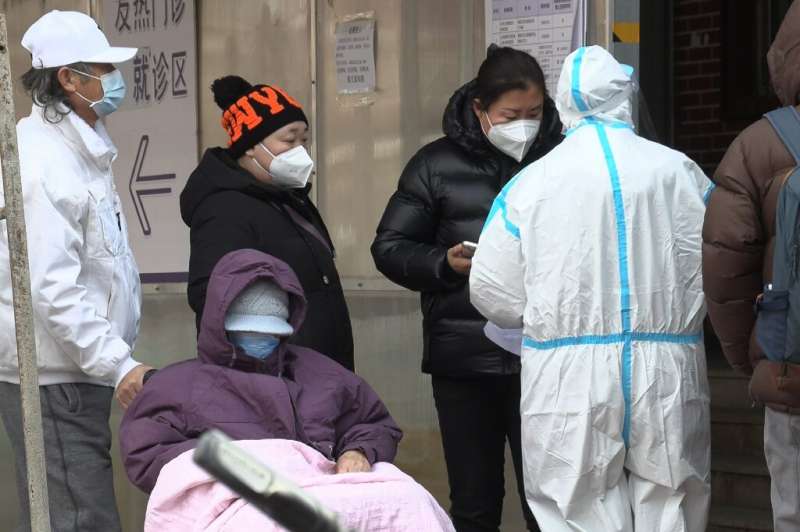
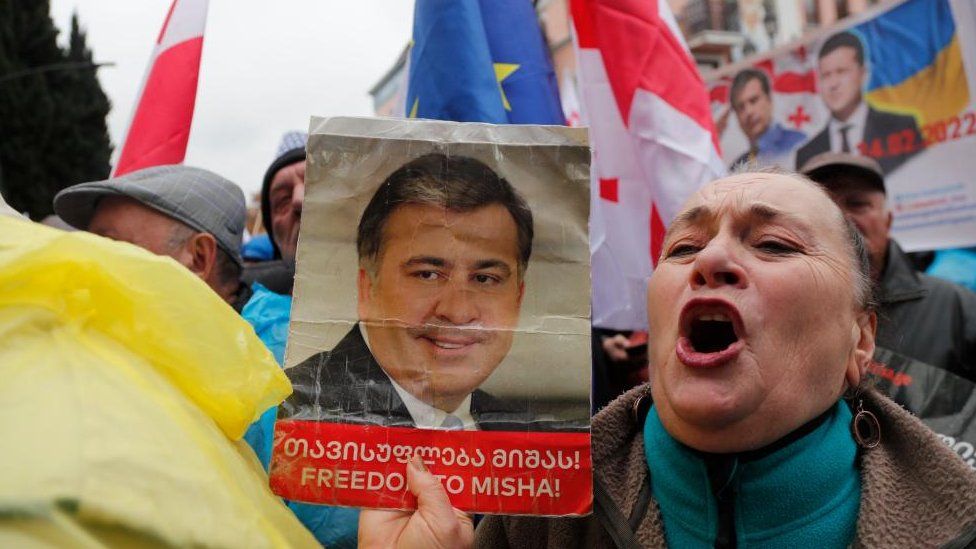

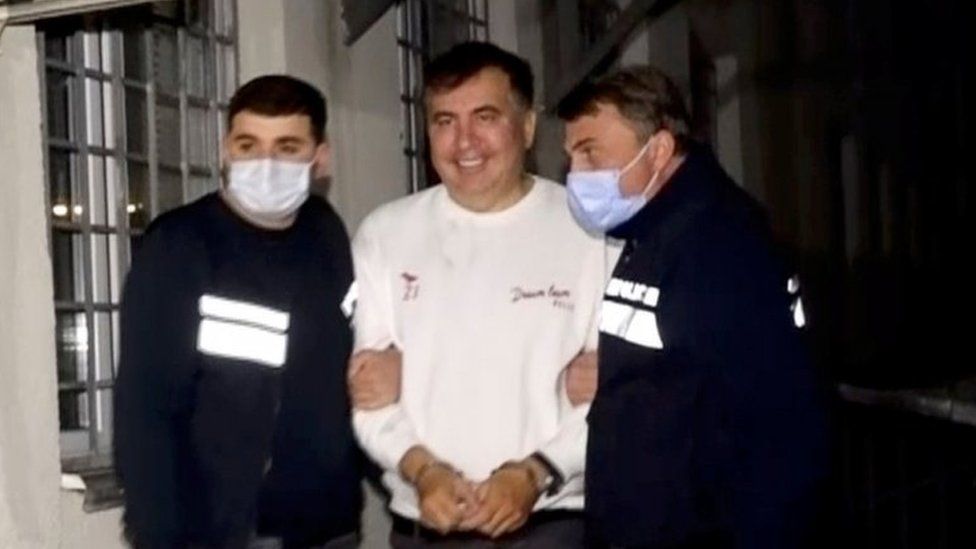 IMAGE SOURCE,GEORGIA INTERIOR MINISTRY/REUTERSImage caption,
IMAGE SOURCE,GEORGIA INTERIOR MINISTRY/REUTERSImage caption,





